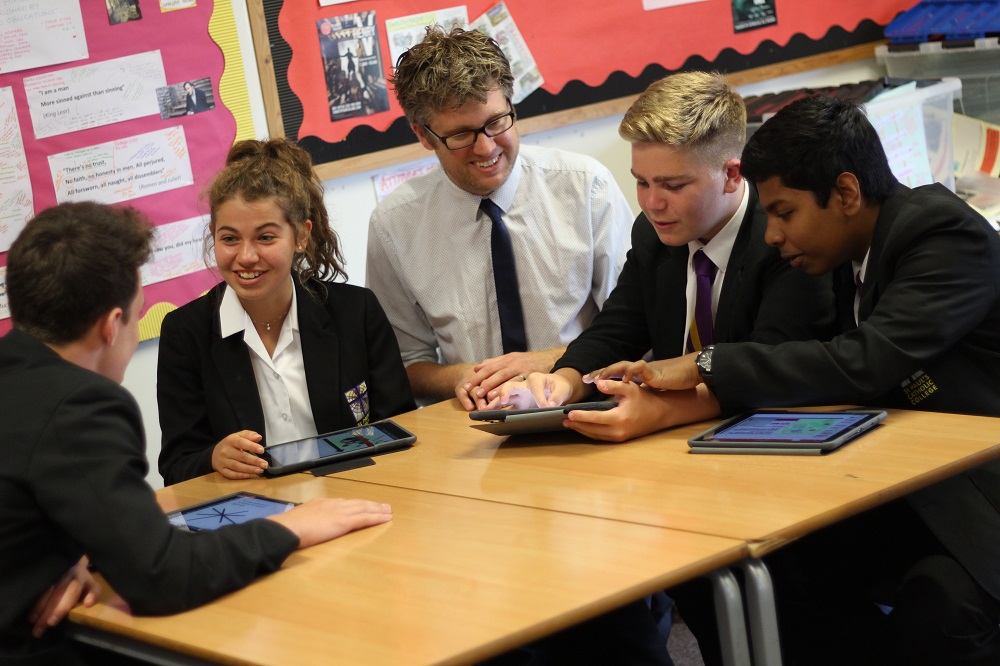Supporting Students
Ofsted
Committed to our students
Academic support
Teachers deliver well differentiated lessons designed to meet the needs of their specific learners. Subject leaders and heads of years (HOYs) monitor student progress using data gathered from assessments interim reports, profiles and mock exams. Together, these teams implement a range of measures to support students with their academic progress.
Pastoral support
Students spend time with their tutor in form time or assembly every day. Our tutors develop a nuturing, caring and supportive relationship with each individual. Tutors help students with personal, social and academic issues and liaise with parents/carers, heads of years (HOYs) and other staff.


Learning support
The education that we provide to students with special educational needs and disabilities (SEND) is second to none. Our Learning Support department are experienced at working with students with the broadest range of specific learning needs.
Systems to track and monitor
Our comprehensive purpose-built systems for tracking and monitoring progress, achievement, behaviour and safeguarding means that we are able to intervene at the earliest possible opportunity. We evaluate the impact of each intervention to ensure their effectiveness.
Mental Health & Emotional Wellbeing
At St Paul’s Catholic College, we believe in promoting positive mental health and emotional wellbeing to ensure that the school is a community where everyone feels able to thrive. Our school ethos and values underpin everything that we do.
What helps with mental health?
Factors that can help keep children and young people mentally well include:
- being in good physical health, eating a balanced diet and getting regular exercise
- having time and the freedom to play, indoors and outdoors
- being part of a family that gets along well most of the time
- going to a school that looks after the wellbeing of all its pupils
- taking part in local activities for young people.
Other factors are also important, including:
- feeling loved, trusted, understood, valued and safe
- being interested in life and having opportunities to enjoy themselves
- being hopeful and optimistic
- being able to learn and having opportunities to succeed
- accepting who they are and recognising what they are good at
- having a sense of belonging in their family, school and community
- feeling they have some control over their own life
- having the strength to cope when something is wrong (resilience) and the ability to solve problems.

What happens in school?
In school, we teach children about what it means to have good mental health and wellbeing throughout our LoveEd curriculum and daily practice. This is delivered through assemblies, tutor time and community days. These help our children to understand and manage their thoughts, feelings and behaviour and build skills that help them to thrive, such as working in a team, persistence, and self-awareness.
What if my child is experiencing difficulties with their mental health and wellbeing?
Mental health doesn’t mean being happy all the time and neither does it mean avoiding stresses altogether. One of the most important ways to help your child is to listen to them and take their feelings seriously.
In many instances, children and young people’s negative feelings and worries usually pass with the support of their parents and families. It is helpful for us as a school to know what they are going through at these times, so that staff can be aware of the need and support this.
If you are ever worried about your child’s mental health and wellbeing then, just as you would about any concerns that you have about their learning, come and talk to us. In school we have a variety of options available to our families, this can include support from West Sussex Thought-full. To explore this option further, please click on this link: About us - West Sussex County Council
The Senior Mental Health Leads for St Paul’s Catholic College are: Mrs L. Fradgley & Mrs C. Brownings.
Sometimes children will need additional support beyond what school can offer. In which case, go to your GP, ask for some support from your doctor or a referral to a counselling service.
- Forest: Stay focused – Apps on Google Play
- NSPCC Online Safety
- Parent Session - e-Saftey
- Parent Session - The Teenage Brain
Eating Well
Self-Harm

